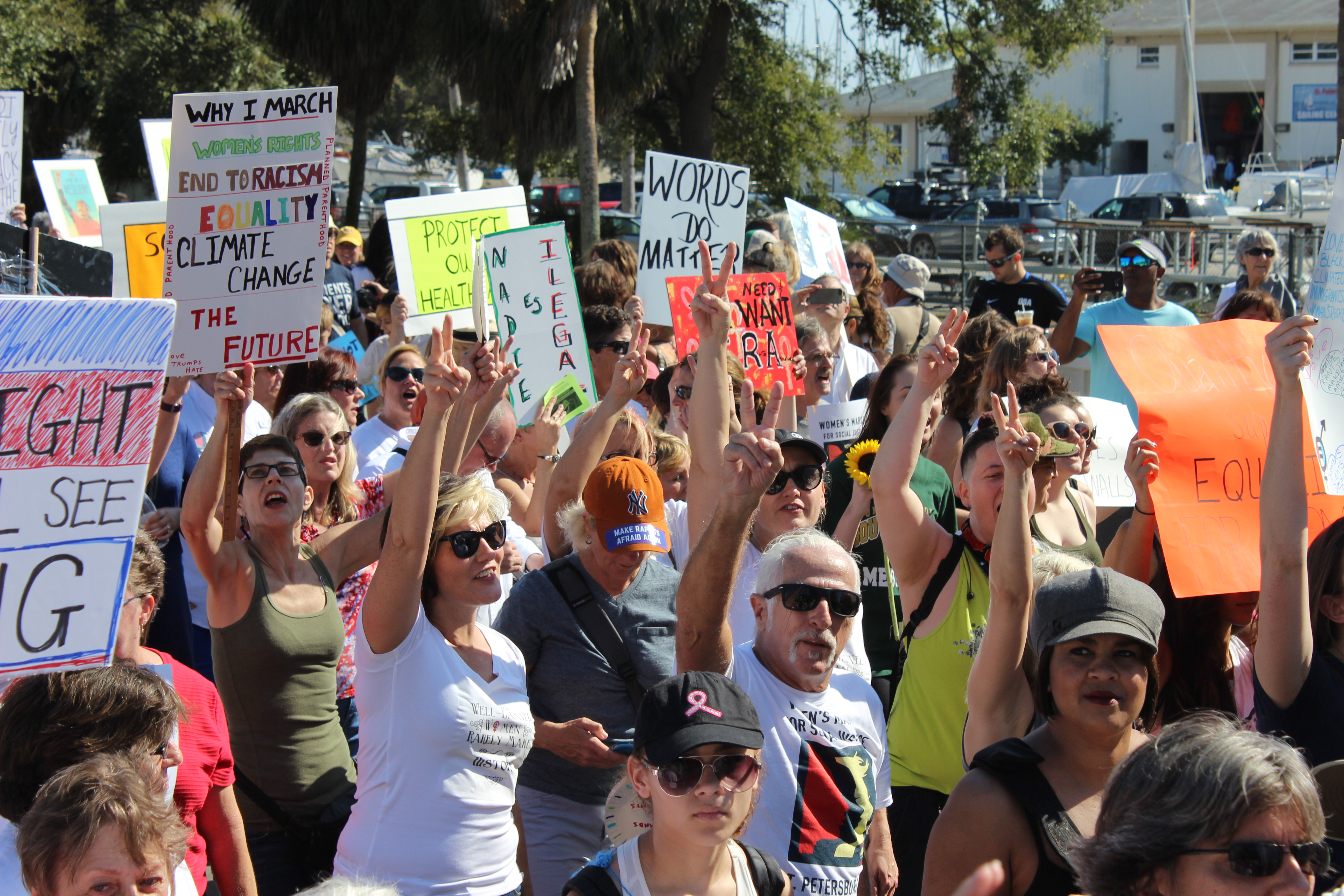Protests erupted in over 600 cities, with an estimated 4.2 million people marching throughout the country to advocate for women’s rights.
The Women’s March held Jan. 21, began as a response to the election of Donald J. Trump as president, but resulted in one of the largest demonstrations in history.
If you attended the Women’s March or have participated in any demonstrations since then, you owe it to yourself and people everywhere to continue your activism. There are a ton of different ways to keep your activism alive. You can call your senators, attend town hall meetings, vote in all elections, sign petitions and spread the word about any local events you and your peers can participate in.
It might seem daunting to think about doing all of these things, but practicing political activism in your everyday life is easier than it might seem.
To call your senators, you just have to know their numbers. The official Senate website has an updated list of all the senators along with their phone number, address and website. You can even search by state to make the process easier.
Once you have this information, create a contact for them on your phone so you have it ready and easily accessible. If you find the concept of talking on the phone terrifying, 5calls.org is a website dedicated to providing scripts for people to use when calling senators.
Attending a town hall meeting is a great way to engage in political activism because it gives you a chance to speak directly with representatives and ask questions. To find a town hall meeting near you, go to your legislator’s website to find a date, location and time.
From there you have to register for the event, which is required for all who plan to attend. Write down a few questions you have for your representative, focus on one topic and make sure the questions are open-ended.
Practice asking your questions beforehand. On the day of the meeting, arrive early and sign in. Find out what steps you have to take to ask a question, and then sit close to the front when you get inside. Always remember to introduce yourself with your first and last name, and keep your questions short and formal.
Signing petitions is a very simple way to stay politically active without really having to do a lot of work. The White House is required to respond to any petition on its site that receives more than 100,000 signatures, so look there and sign anything that you feel passionately about.
The key to keeping political activism alive is to tell others what is going on and how they can get involved. Whether it’s a local event or nationwide protest, make sure to speak up about it and let others know what is going on, but also remember to participate! The follow-through is just as important as spreading the information.
Taking my own advice, I will end with information about the next big thing the leaders of the Women’s March have put together. On March 8 —International Women’s Day — there will be a “Day Without Women” strike.
The strike calls for women to stop working in whatever way they can. Organizers urge participants to “take the day off from paid and unpaid labor.” Rallies and marches are being planned around the world. I encourage you to look into any local activities planned for this day and participate if you can. If you can’t join, wear red in solidarity with the movement and avoid shopping unless it’s a small woman or minority-owned business.
Never stop fighting for what you believe and for what is right. Remember that even the smallest action can make a huge difference, so never give up on your political activism!
Photo courtesy of Anna Bryson | The Crow’s Nest



